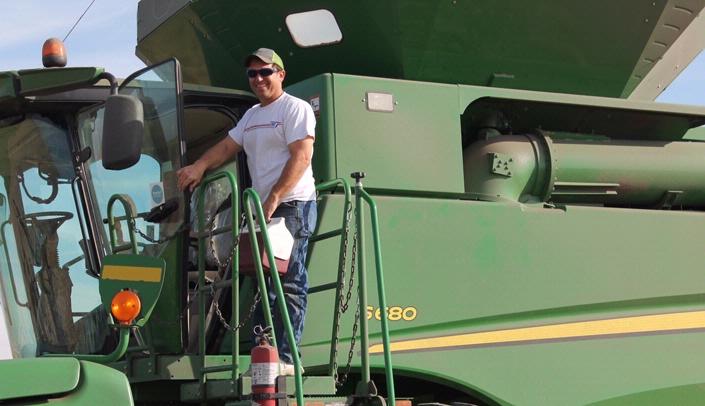UNMC’s colleges of nursing and allied health professions have conducted a series of collaborative projects studying ways in which web- and technology-based interventions can help rural women improve their own health — but what about rural men?
They face many of the same health problems and disparities as their female counterparts. The UNMC team set out to see if technology, with a few tweaks, could similarly help rural men.
The collaborators
Christine Eisenhauer, Ph.D., College of Nursing, Northern Division, Norfolk
Patricia Hageman, Ph.D., College of Allied Health Professions, physical therapy
Sheri Rowland, Ph.D., candidate, College of Nursing
Betsy Becker, D.P.T., College of Allied Health Professions, physical therapy
Susan Barnason, Ph.D., College of Nursing, Lincoln Division
Carol Pullen, Ed.D., College of Nursing, Omaha
A pilot study of 12 men in rural northeast Nebraska gave participants FitBit One activity trackers, targeted text-message reminders, and a self-monitoring app to log their food intake and to monitor the progress of their (anonymous) fellow participants.
The study, which was published recently in the journal Public Health Nursing, was the first known study involving text messages as an intervention for rural men.
Participants responded that while there were kinks to work out, the activity trackers kept them motivated, the text messages were largely well received and the technology mostly easy enough to use.
“When I get (texts) in the mornings, it’s kind of a nice thing to see someone say something motivational,” one participant said.
Weak cell signals in rural areas meant sometimes texts were late. In single-computer households they had to wait until others got off the Internet. But, family and even co-workers were supportive, even troubleshooting the technology.
Some admitted to being so hooked, they checked their steps five times a day.
But, trackers fell off when doing jobs involving stooping or carrying. And they didn’t measure the true physical difficulty of some farm tasks or award 2,000 steps for tractor vibration.
The calories app had numbers for fast food, but not Tater-Tot casserole or “T-bone the size of a dinner plate.”
Participants likely got in more steps during the study period if it was during the “non-peak” farming season. Busy times make it tougher to live healthy: “You go check cows in the middle of the night and you grab a pop and a sandwich,” one participant said.
Same with inactive leisure activities, like sitting in a deer stand. “I gain 30 pounds every deer season,” one said.
They enjoyed comparing their activity with other participants, and would like it even more, “If you got a group of people that you knew and who knew everybody and it was a competition . . .” one said. Like fantasy football!
Likewise, investigators strived to maintain a masculine tone with the study’s messaging, leavened by humor, to better reach the men. “Aerobic activity,” for example, didn’t connect.
“I don’t do aerobics,” one participant said.

Congrats to all of you on getting this study published! I know several of you who worked on it, and am glad to see your hard work paying off. Tater tot casserole and "I don't do aerobics" – I love rural Nebraskans!!!